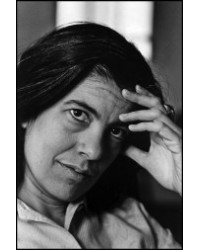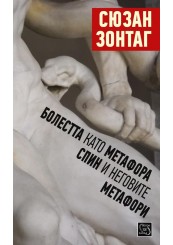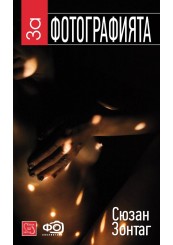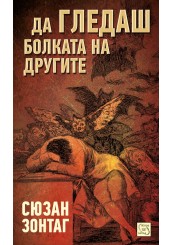Susan Sontag

Susan Sontag (1933 – 2004) was an American writer, film-maker, teacher, political activist. She published her first major work, the essay "Notes on 'Camp'", in 1964. Her best-known works include On Photography, Against Interpretation, Styles of Radical Will, The Way We Live Now, Illness as Metaphor, Regarding the Pain of Others, The Volcano Lover, and In America.
Sontag was active in writing and speaking about, or travelling to, areas of conflict, including during the Vietnam War and the Siege of Sarajevo. She wrote extensively about photography, culture and media, AIDS and illness, human rights, and communism and leftist ideology. Although her essays and speeches sometimes drew controversy, she has been described as "one of the most influential critics of her generation."
Sontag was born Susan Rosenblatt in New York City, the daughter of Mildred (née Jacobson) and Jack Rosenblatt, both Jews of Lithuanian and Polish descent. Her father managed a fur trading business in China, where he died of tuberculosis in 1939, when Susan was five years old. Seven years later, Sontag's mother married U.S. Army Captain Nathan Sontag. Susan and her sister, Judith, took their stepfather's surname, although he did not adopt them formally. Sontag did not have a religious upbringing and claimed not to have entered a synagogue until her mid-20s. Remembering an unhappy childhood, with a cold, distant mother who was "always away," Sontag lived on Long Island, New York, then in Tucson, Arizona, and later in the San Fernando Valley in southern California, where she took refuge in books and graduated from North Hollywood High School at the age of 15. She began her undergraduate studies at the University of California, Berkeley but transferred to the University of Chicago in admiration of its famed core curriculum. At Chicago, she undertook studies in philosophy, ancient history and literature alongside her other requirements. Leo Strauss, Joseph Schwab, Christian Mackauer, Richard McKeon, Peter von Blanckenhagen and Kenneth Burke were among her lecturers. She graduated at the age of 18 with an A.B. and was elected to Phi Beta Kappa. While at Chicago, she became best friends with fellow student Mike Nichols. In 1951, her work appeared in print for the first time in the winter issue of the Chicago Review.
At 17, Sontag married writer Philip Rieff, who was a sociology instructor at the University of Chicago, after a 10-day courtship; their marriage lasted eight years. While studying at Chicago, Sontag attended a summer school taught by the Sociologist Hans Heinrich Gerth who became a friend and subsequently influenced her study of German thinkers. Upon completing her Chicago degree, Sontag taught freshman English at the University of Connecticut for the 1952–53 academic year. She attended Harvard University for graduate school, initially studying literature with Perry Miller and Harry Levin before moving into philosophy and theology under Paul Tillich, Jacob Taubes, Raphael Demos and Morton White. After completing her Master of Arts in philosophy, she began doctoral research into metaphysics, ethics, Greek philosophy and Continental philosophy and theology at Harvard. The philosopher Herbert Marcuse lived with Sontag and Rieff for a year while working on his 1955 book Eros and Civilization. Sontag researched for Rieff's 1959 study Freud: The Mind of the Moralist prior to their divorce in 1958, and contributed to the book to such an extent that she has been considered an unofficial co-author. The couple had a son, David Rieff, who later became his mother's editor at Farrar, Straus and Giroux, as well as a writer.
Sontag was awarded an American Association of University Women's fellowship for the 1957–1958 academic year to St Anne's College, Oxford, where she traveled without her husband and son. There, she had classes with Iris Murdoch, Stuart Hampshire, A. J. Ayer and H. L. A. Hart while also attending the B. Phil seminars of J. L. Austin and the lectures of Isaiah Berlin. Oxford did not appeal to her, however, and she transferred after Michaelmas term of 1957 to the University of Paris. In Paris, Sontag socialized with expatriate artists and academics including Allan Bloom, Jean Wahl, Alfred Chester, Harriet Sohmers and María Irene Fornés. Sontag remarked that her time in Paris was, perhaps, the most important period of her life. It certainly provided the basis of her long intellectual and artistic association with the culture of France. She moved to New York in 1959 to live with Fornés for the next seven years, regaining custody of her son and teaching at universities while her literary reputation grew.
€4.91 (9.60 лв.) €6.14 (12.00 лв.) Ex Tax: €4.50 (8.81 лв.)




